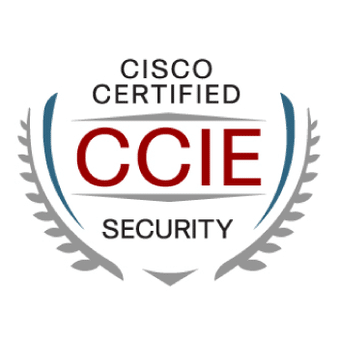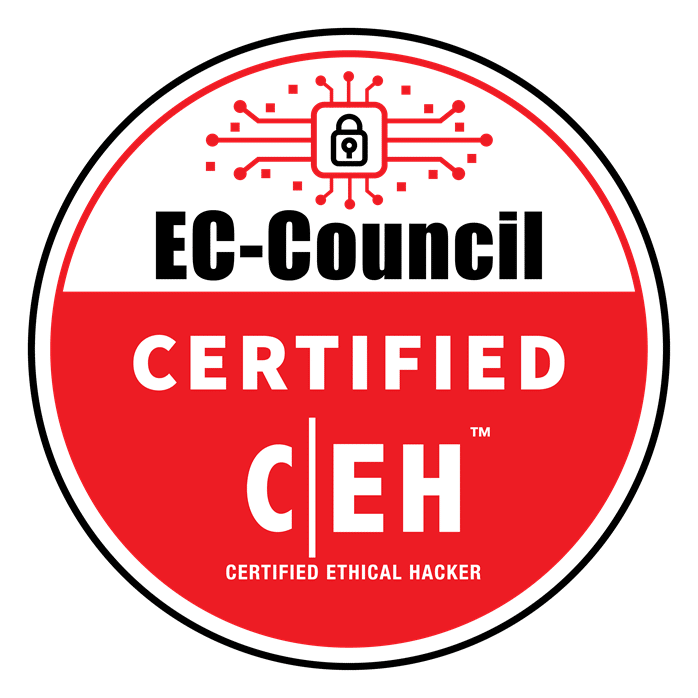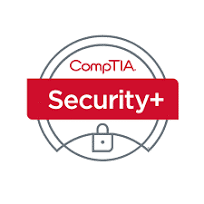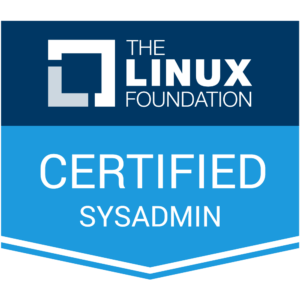Network & Cybersecurity
Program Details
Program Credential
Diploma
Program Duration
58 Weeks(1160 Hours)
Program Status
Registration Open
Register Now!
Program Overview

260 Hours Off-Site Internship
Instructor-Led Hybrid Program
Project-based Learning
Networking and Cybersecurity Diploma at BizTech College
Linux Foundation Certified System Administrator (LFCS)
The Linux Foundation Certified System Administrator (LFCS) exam is ideal for candidates looking to validate their ability to proficiently install, configure, and operate Linux-based systems, whether on-premises or cloud-based.
CompTIA Security+ is a global certification that validates the baseline skills necessary to perform core security functions and pursue an IT security career.
Certified Ethical Hacker CEH (v11)
CEH v11 offers a well-rounded and up-to-date program that stands out in the crowded field of cybersecurity certifications. Its comprehensive curriculum, focus on emerging threats like IoT hacking, and competitive CEH certification cost make it a compelling choice for anyone looking to break into or advance in the cybersecurity field.
Achieving CCIE Security certification proves your skills with complex security solutions. We cover the end-to-end lifecycle of complex security solutions and technologies, from designing and deploying to operating and optimizing.
Certified Cloud Security Professional
The Certified Cloud Security Professional (CCSP) is a certification designed for those with some experience in information technology (IT) and security looking to advance their careers in cloud-based cybersecurity. Becoming a CCSP demonstrates to potential employers that you have the technical skills needed to secure valuable assets in the cloud.
Upon graduation from our networking and cybersecurity program, you will have gained hands-on experience and in-depth knowledge in the following areas:
- Understand the fundamental principles of cybersecurity and its importance in modern digital environments.
- Identify and classify different types of cyber threats and attacks.
- Recognize the significance of access control and authentication mechanisms in maintaining information security.
- Understand the fundamental principles of computer networks, including networking protocols, topologies, and the OSI model.
- Understand the fundamental principles of cybersecurity management, including risk assessment, governance, compliance, and security frameworks.
- Recognize the principles of wireless networking, including various wireless standards, security protocols, and site survey considerations.
- Explain the importance of network documentation, network monitoring tools, and performance optimization techniques.
- Understand the fundamental concepts of cryptography, including encryption, decryption, and key management.
- Explain the importance of cryptographic protocols in ensuring data integrity, confidentiality, and authentication in various digital environments.
- Demonstrate the fundamentals concepts of Linux operating system.
- Identify common threats and vulnerabilities that can compromise the security of operating systems.
- Explain the significance of OS patch management, vulnerability assessment, and security auditing in maintaining a secure operating environment.
- Understand the common web and mobile application security threats and vulnerabilities, including SQL injection, Cross-Site Scripting (XSS), Cross-Site Request Forgery (CSRF), and more.
- Familiarize with various security testing methodologies and tools, such as Static Application Security Testing (SAST), Dynamic Application Security Testing (DAST), and manual code reviews, to identify and remediate application security weaknesses.
- Understand and Apply technics for vulnerability management and practical processes to mitigate attacks and vulnerability. Identify and Apply various Security controls of CISCO, FORTINET, Palo Alto.
- Grasp the essentials of securing IoT devices, including firmware updates, secure boot, and secure communication channels, to prevent IoT-related security breaches.
- Familiarize with the principles of mobile security, including secure mobile app development, mobile device management, and mobile threat defines.
- Familiarize yourself with wireless network security risks and weaknesses, including weak encryption protocols (e.g., WEP) and how they can be exploited.
- Understand the process of preparing a comprehensive penetration test report, documenting findings, and providing actionable recommendations for security improvements.
- Recognize the legal and regulatory considerations relevant to incident response and recovery, including data breach notification requirements and chain of custody procedures for digital evidence.
- Understand the fundamentals of digital forensics, malware analysis, and other investigative techniques used in incident response to identify the source, scope, and impact of cybersecurity incidents.
- Familiarize with the fundamentals of memory forensics, network forensics, and mobile device forensics, and their role in digital investigations.
- Understand the principles of digital forensics and data acquisitions, including the legal and ethical considerations involved in handling digital evidence.
- Recognize the importance of incident response and crisis management in cybersecurity, and the steps involved in handling cyber incidents effectively.
Students looking to enroll in the Networking & Cybersecurity program must first meet the following prerequisites:
- Ontario Secondary School Diploma or equivalent OR
- Mature Student Status (18 years of age or older) AND
- Successful completion of Entry Assessment Test
Get ready for one of the Highest Paid Technology Career
Massive amount of data is created and shared every day. With network expansion and advancement of cloud-based technologies, cybersecurity professionals are in demand more than ever.
Career Opportunities
Networking and cybersecurity professionals have a wide range of responsibilities and roles. As the company’s first line of defense, cybersecurity specialists are in demand from medium to large corporations and in government departments.
As a networking and cybersecurity graduate, you will have the theoretical and hands-on expertise to pursue the following positions:
- Cyber Security Engineer or Architect
- Network Security Engineer
- Network Administrator or Engineer
- Cyber Security Specialist/ Technician
- Security Administrator
- Cyber Security Analyst
- Incident Analyst/Responder
Salary
- According to Job Bank Canada the average salary for a network security engineer is $43.59/hr. and can earn up to $76.92/hr. In Ontario.
- According to Job Bank Canada the average salary for a cybersecurity engineer is $40.00/hr. and can earn up to $60.44/hr. In Ontario.
- According to Insurance Business, Canada is facing shortage of Cybersecurity Professional amidst rising demand for cybersecurity experts.
Qualities Employers Seek
To be a successful networking and cybersecurity professionals, you would need the following attributes:
- Analytical Thinking: One should possess the capacity to assess problems and think out-of-the-box.
- Think like a Hacker: To handle the hackers, you need to think like one. You should have the ability to channel the thought process like the attacker.
- Continuous Learner: You need to be a proactive learner. Be up to date with the latest changes in the industry.
- Communication Skills: You should possess apt communication skills and confidence to ask support and answer questions across all areas of the business, from CEO and board-level executives to end-users alike.
Biztalk: Is Cybersecurity Diploma Worth It?
Certification Preparation





